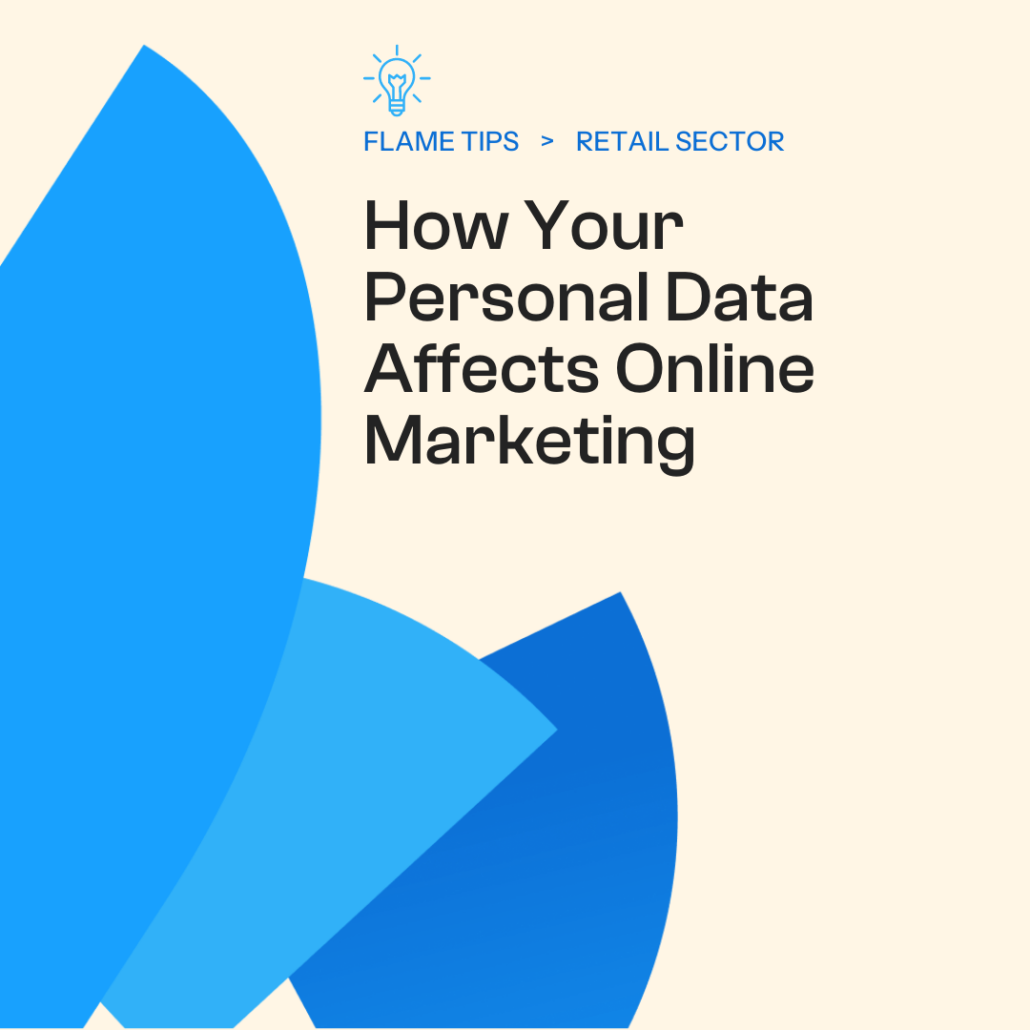Just like animals leave tracks in the wild and people leave footprints in the sand, your activities online leave a trail of digital breadcrumbs for marketers to follow. But why would they want to do this? Every website you visit and every purchase you make through a secure gateway all add to your very own virtual profile that marketers use to shape their online marketing efforts.
While there can be valid concerns for consumers when their personal information is collected online, marketers usually use this data in good faith. From toe to heel, they can analyze your individual footprint to understand your behavior, interests, and preferences. Those insights can then be used to create tailored messaging and improve your overall experience through personalization.
Targeted Advertising Using Personal Data
Think of it this way: people without children aren’t likely going to want to see ads about baby clothes, while new moms and dads will probably be a lot more interested. And that’s why targeted advertising is so helpful. The deeper their understanding of their customer base, the better they’re able to curate an engaging brand experience for the right people. This ensures that none of the company’s hard-earned money goes to waste and that they’re actually getting something in return for their marketing efforts and spending.
The interesting thing about targeted ads is that the work is done behind the scenes. All while you’re browsing a site and clicking on different products and articles, the site creates cookies that are used to generate ads relating to your activities. But given that the system isn’t as advanced as marketers would like, it’s not perfect. If you’ve been looking at items to help plant your new lawn, you might keep getting ads for grass seed and other tools long after you’re done planting.

Personalized Experiences
Targeted ads are just one way that collecting personal data can manifest. Customers get to take advantage of an elevated experience when they’re shopping, looking for services, and watching movies on streaming platforms. As more information gets collected, the algorithm is able to show more relevant content that users will value.
All industries now use this approach to boost customer satisfaction and loyalty, including the iGaming sector. Personalization is key, so finding out how users play and behave on a gambling app is a high priority. For example, a platform might recommend a Pragmatic gaming demo on casinos.com to players looking for free entertainment based on their browsing habits.
Beyond the relevant content, however, marketers can also send out targeted messaging based on their situation. If you’ve ever loaded up items in a shopping cart and abandoned your purchase, you might’ve received an email later on with a subject line that looks something like “You forgot this!” or “Time’s running out.” Along with an enticing discount, these messages tend to increase conversion rates.
Behavioral Tracking to Predict Consumer Trends
While we’ve been focusing on the individual consumer, we can’t forget that data collection affects the broader customer landscape. The data collected from millions of users provides insight into a larger network of trends and patterns for consumer behavior. Each segment or demographic could reveal harder-hitting information when it comes to purchasing behavior and market trends.
Especially for businesses that don’t have a niche audience, data from specific demographic segments or psychographic segments (e.g., health-conscious or environmentally-conscious) could tell them a lot about what influences their buying decisions. And there are bound to be stark differences depending on each group. A grocery chain with online delivery might find that suburban consumers prefer traditional brands while younger consumers value organic options – just from a little data collection.
This information also gives them a look into changes in the even broader market landscape. Maybe there are emerging trends in the fashion industry or social media fads that pose new opportunities. Perhaps certain pricing strategies and ad campaigns aren’t working in your favor, or there are new lifestyle preferences that change the way consumers interact with your brand. In turn, business marketing strategies become better informed, leading them to develop effective loyalty programs, discounts, website pages, and more that meet the needs of each group.
Data Privacy Concerns
Despite the positive aspects of customization and personalization, there are many concerns about the collection and storage of personal data. After all, companies are still collecting sensitive data, and no one wants to have that out in the ether. In the wrong hands, having access to financial information, names, addresses, and browsing history can lead to a variety of cybercrimes that put the business and its customers at serious risk.
In response to these concerns, regulations such as the General Data Protection Regulation (GDPR) and the California Consumer Privacy Act (CCPA) have been put in place to regulate data collection, processing, and protection. These laws require companies to safeguard all the information they collect and allow consumers more control over their data. Although websites do have to collect basic data for certain purposes, they need explicit consent from users, and users have the power to control how much data they want to share.
So, the next time you see a cookie pop-up asking for user consent, you might see it with a better understanding of the purpose behind personal data tracking. These forms of tracking aren’t necessarily one-sided but rather a mutual agreement that can positively affect both parties.

